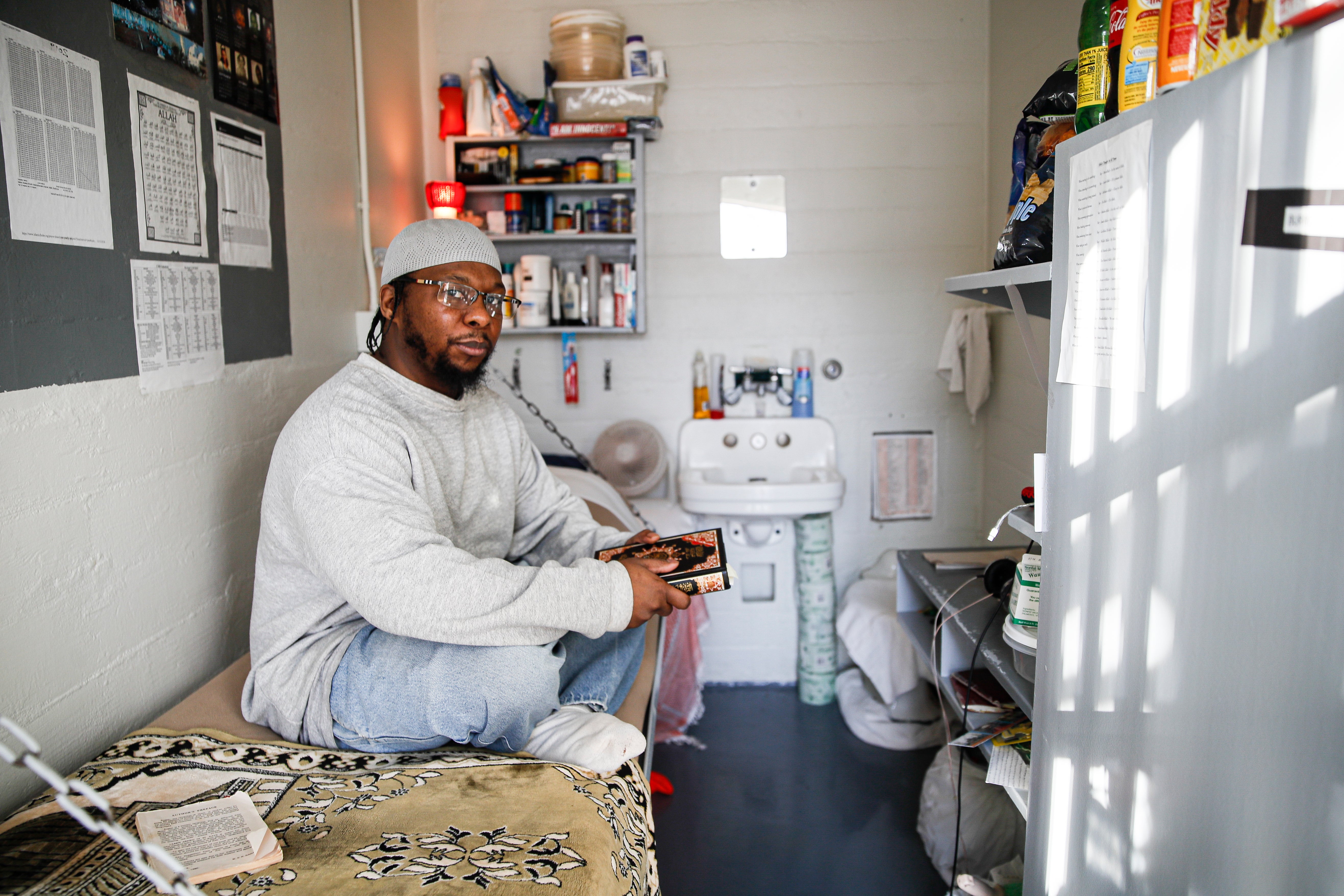Legal panel: Free Minneapolis man jailed for life as teen
An independent panel of national legal experts has recommended the release of an African American man who was sentenced to life in prison as a teenager for the killing of an 11-year-old Minneapolis girl

Your support helps us to tell the story
From reproductive rights to climate change to Big Tech, The Independent is on the ground when the story is developing. Whether it's investigating the financials of Elon Musk's pro-Trump PAC or producing our latest documentary, 'The A Word', which shines a light on the American women fighting for reproductive rights, we know how important it is to parse out the facts from the messaging.
At such a critical moment in US history, we need reporters on the ground. Your donation allows us to keep sending journalists to speak to both sides of the story.
The Independent is trusted by Americans across the entire political spectrum. And unlike many other quality news outlets, we choose not to lock Americans out of our reporting and analysis with paywalls. We believe quality journalism should be available to everyone, paid for by those who can afford it.
Your support makes all the difference.A national panel of legal experts recommended the immediate release of a Black man who was sentenced to life in prison as a teenager nearly two decades ago.
The panel also said Minneapolis police appeared to have suffered from “tunnel vision” while investigating the case of Myon Burrell, who was convicted of killing a little girl hit by a stray bullet in 2002. Furthermore, police ignored witnesses and evidence that might have helped eliminate Burrell as a suspect, it found.
The panel which was created to examine Burrell’s conviction and sentence, released it’s report Tuesday. Many of its findings mirrored those uncovered by an Associated Press and APM Reports investigation earlier this year. They included unreliable testimony from the sole eyewitness; a heavy reliance on jailhouse informants who received “extraordinarily generous” sentence reductions in exchange for their testimonies; and a failure to retrieve surveillance video from a corner store — footage that Burrell, now 34, has always maintained would have cleared him.
The eight-member panel was unable to address Burrell’s guilt or innocence, saying its work was hampered by Hennepin County Prosecutor Mike Freeman’s failure to provide all of the evidence it requested. It recommended the case be handed over to the state’s new conviction review unit for further investigation, noting that the missing police and prosecution files, witness interviews, tape recordings and details about deals cut with jailhouse informants “may yield new evidence of actual innocence or due process issues.”
In the meantime, the panel members said they supported Burrell’s release from prison, noting his age at the time of the crime, that he had no prior record and that he behaved well behind bars. They pointed out that the U.S. Supreme Court in recent years has argued against overly harsh sentences for juveniles, saying their brains and decision-making skills are not fully developed.
Burrell’s case will be brought before the Minnesota Board of Pardons next week.
“The extensive work of this outstanding legal panel supports the immediate release of Myon Burrell,” said Nekima Levy Armstrong, who heads the Minneapolis-based Racial Justice Network, adding that the case “represents everything that is wrong with the criminal justice system and the ease with which an innocent person can be convicted."
Burrell was accused of firing the bullet that killed Tyesha Edwards, a sixth-grade Black girl who was shot through the heart while doing homework at her dining room table. Her death enraged the African American community, which was tired of losing children to guns and gang violence.
U.S. Sen. Amy Klobuchar, who was then the city’s top prosecutor, has held up Burrell’s conviction throughout her political career as an example of her tough-on-crime policies that helped put away young, dangerous offenders in the name of justice.
After she raised the case again on the Democratic presidential debate stage last year, the AP published the findings of its investigation, which raised several red flags surrounding the case. They included:
— No hard evidence: No gun, DNA, or fingerprints were found.
— Video footage showing the lead homicide detective offering a man in police custody $500 for Burrell’s name, even if it was just hearsay.
— Burrell’s co-defendants saying the teenager wasn’t at the scene that day. And one of them, Isaiah Tyson, said he, not Burrell, was the actual triggerman.
Laura Nirider, co-director of the Center on Wrongful Convictions at Northwestern University, and Barry Scheck, co-founder of the national Innocence Project, served as advisors to the panel, which included a former state attorney general, a former federal prosecutor, a member of the country’s first conviction integrity unit, and the past president of the national Innocence Network.
Several Minnesota organizations, including the state chapters of the NAACP and the American Civil Liberties Union, also supported the panel’s efforts.
The report acknowledged the devastating impact that Tyesha’s death had on her family and the community, and said most of her surviving relatives chose not to comment about his recommended release from prison. One family member explained that the issue was “super touchy.”
But Tyesha’s biological father, Jimmie Edwards, said he hoped Burrell, who has already served 18 years, would remain behind bars.
“If you do the crime, you do the time,” he was quoted as telling the panel. “The guy is a thug, and his whole family is thugs ... he should have had his ass in school. I hope and pray they will not release him.”
___
Follow Robin McDowell and Margie Mason on Twitter: https://twitter.com/robinmcdowell and https://twitter.com/margiemasonAP